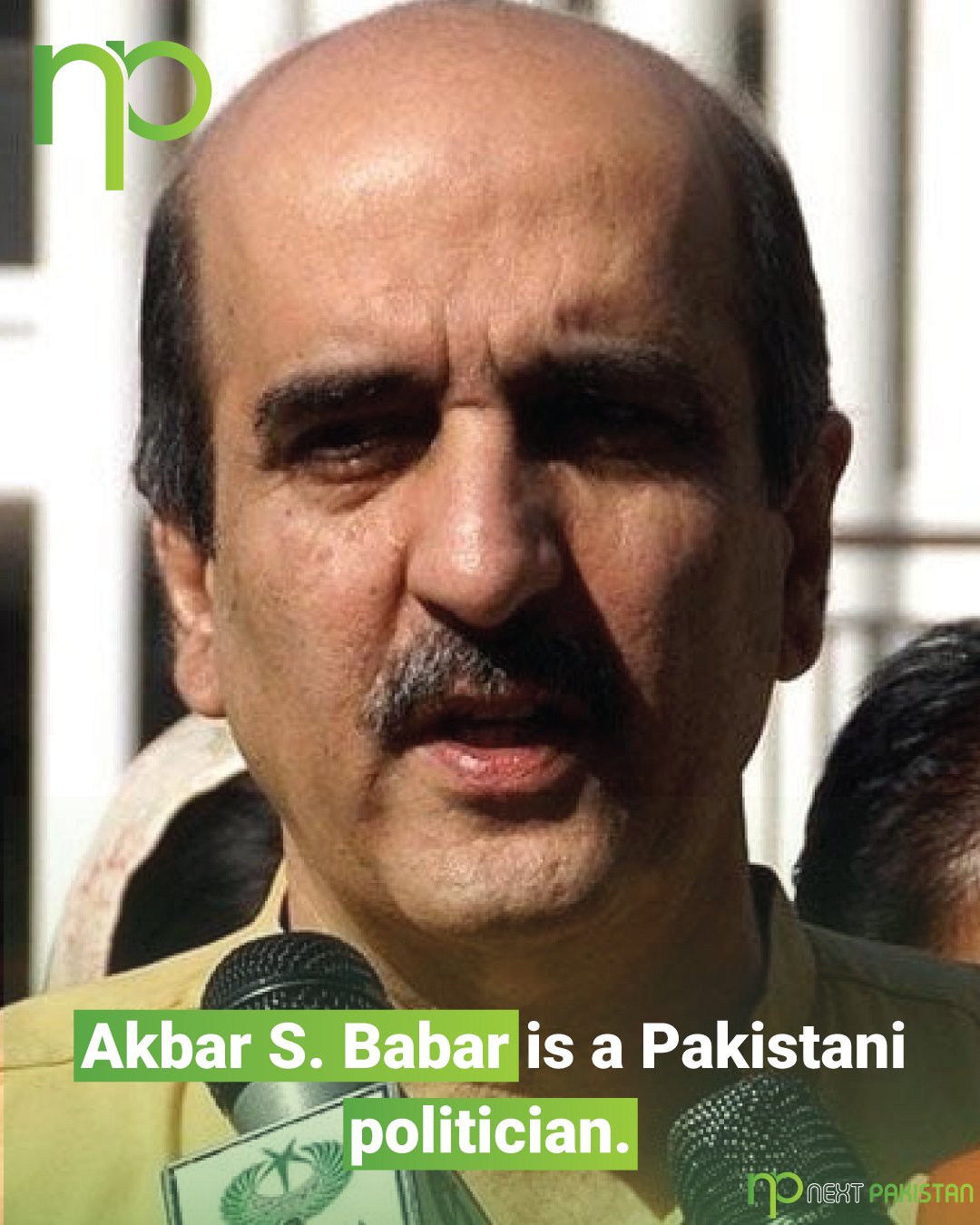
- December 8, 2023
- ubaidah khan
- 0
Akbar S. Babar is a Pakistani politician who gained attention for his association with the Pakistan Tehreek-e-Insaf (PTI) party. While he was initially a member of PTI, Babar eventually became known for his dissenting stance against the party and its policies.
One notable aspect of Akbar S. Babar’s involvement with PTI is his claim to have served as the founding president of Pakistan Tehreek-e-Insaf in Balochistan. This suggests that he played a role in establishing and organizing the party’s presence in the Balochistan province.
However, despite his initial affiliation with PTI, there came a point of conflict between Akbar S. Babar and the party’s leadership, particularly PTI Chairman Imran Khan. In 2012, Imran Khan took the decision to remove Akbar S. Babar from the party. The specific reasons for this removal may involve internal party disagreements, policy differences, or other factors that contributed to a divergence in views between Babar and the PTI leadership.
Early Life
Akbar S. Babar’s story unfolds against the vast landscapes of Balochistan, a place that holds the roots of his journey. Born into a family with a touch of military legacy, his father’s retired lieutenant colonel status in the Pakistan Army speaks to a commitment to service echoing through generations.
Before the realm of politics beckoned, Babar embarked on a professional odyssey as a civil engineer, finding himself at the helm as Project Director at USAID in 1992. Post-USAID, Babar’s commitment to his homeland persisted. His dedication found expression in United Nations projects, marking a chapter where his efforts contributed to the social and economic progress of BalochistanThe journey didn’t stop there. With a compass pointing toward societal welfare, Babar stepped into the consultancy sector, specifically focusing on the social domain. Here, he became a guide, offering expertise on matters related to social development, public policy, and the well-being of communities.
Political Career
In the general elections of 1997, he contested the National Assembly election from Chagai District in Balochistan. However, it appears that he received a relatively modest number of votes, around 1500. The outcome of the election suggests that he did not secure a parliamentary seat during that particular electoral contest.
Additionally, it’s noted that Akbar S. Babar has taken on a leadership role within the Pakistan Tehreek-e-Insaaf (PTI) party, serving as the Information Secretary. As the Information Secretary, he would likely have been responsible for communicating the party’s messages, managing public relations, and disseminating information about PTI’s policies and activities.
Expulsion from PTI
In 2011, the Pakistan Tehreek-e-Insaaf (PTI) party expelled Akbar S. Babar and revoked his membership. This suggests that there were significant disagreements or issues within the party that led to his expulsion.
The reasons for Akbar S. Babar’s expulsion and the specific circumstances surrounding this decision would likely be documented in the party’s internal records. Such decisions can be influenced by a variety of factors, including policy disagreements, internal conflicts, or breaches of party discipline.
Legal Scrutiny Surrounding Foreign Funding Allegations
Petition Against Irregularities:
In 2014, Akbar S. Babar filed a petition with the Election Commission of Pakistan (ECP) alleging irregularities in the party funds of PTI.
The petition specifically pointed to the transfer of funds, amounting to lakhs of dollars, to PTI’s bank accounts through two offshore companies.
Babar claimed that PTI had kept these bank accounts secret from the Election Commission.
Scrutiny Committee Hearings:
The Scrutiny Committee of the Election Commission conducted 96 hearings in the court regarding the allegations made by Akbar S. Babar.
ECP Decision (2 August 2022):
On August 2, 2022, the Election Commission of Pakistan announced its decision on the matter.
The Election Commission stated that the allegations of taking prohibited funds from abroad against PTI had been proven.
As a result, the Election Commission issued a show-cause notice to PTI, asking why these funds should not be confiscated.
Simultaneously, the Election Commission announced its intention to send the matter to the federal government.
PTI's Response:
PTI, in response to the Election Commission’s decision, announced its intention to challenge the decision in court.
The central spokesperson for PTI dismissed the objections, stating that they lacked legal standing due to Akbar S. Babar’s departure from PTI thirteen years ago.
This development underscores the legal and financial challenges faced by political parties and the potential implications of allegations related to the transparency and legality of their funding sources. Legal proceedings and challenges to such decisions in court are common in situations where there are disputes over election-related matters. It will be interesting to see how the situation unfolds in subsequent legal proceedings.